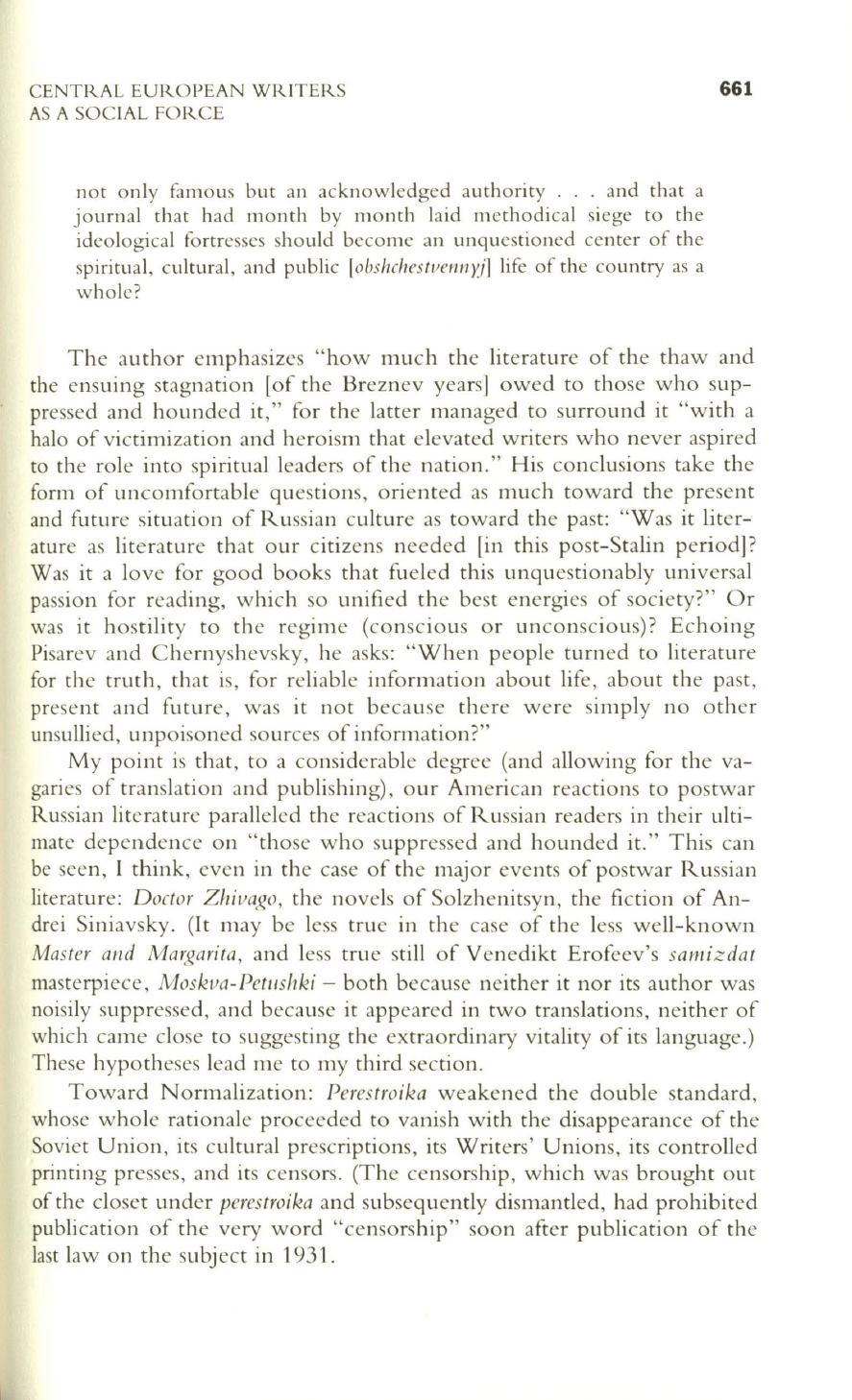
CENTRAL EUROPEAN WRITERS
AS A SOCIAL FORCE
not only famous but an acknowledged authority.
and that a
journal that had month by month laid methodical siege to the
ideological fortresses should become an unquestioned center of the
spiritual, cultural, and public
lobshchestvel1Ylyjl
life of the country as a
whole?
661
The author emphasizes "how much the literature of the thaw and
the ensuing stagnation [of the Breznev years] owed to those who sup–
pressed and hounded it," for the latter managed to surround it "with a
halo of victimization and heroism that elevated writers who never aspired
to the role into spiritual leaders of the nation ." His conclusions take the
form of uncomfortable questions, oriented as much toward the present
and future situation of Russian culture as toward the past: "Was it liter–
ature as literature that our citizens needed [in this post-Stalin period]?
Was it a love for good books that fueled this unquestionably universal
passion for reading, which so unified the best energies of society?" Or
was it hostility to the regime (conscious or unconscious)? Echoing
Pisarev and Chernyshevsky, he asks: "When people turned to literature
for the truth, that is, for reliable information about life, about the past,
present and future, was it not because there were simply no other
unsullied, unpoisoned sources of information?"
My point is that, to a considerable degree (and allowing for the va–
garies of translation and publishing), our American reactions to postwar
Russian literature paralleled the reactions of Russian readers in their ulti–
mate dependence on "those who suppressed and hounded it." This can
be seen, I think, even in the case of the major events of postwar Russian
literature:
Doctor
Zhiva<~o,
the novels of Solzhenitsyn, the fiction of An–
drei Siniavsky. (It may be less true in the case of the less well-known
Master and Margarita,
and less true still of Venedikt Erofeev's
sarnizdat
masterpiece,
Moskva-Petllshki
- both because neither it nor its author was
noisily suppressed, and because it appeared in two translations, neither of
which came close to suggesting the extraordinary vitality of its language.)
These hypotheses lead me to my third section.
Toward Normalization:
Perestroika
weakened the double standard,
whose whole rationale proceeded to vanish with the disappearance of the
Soviet Union, its cultural prescriptions, its Writers' Unions, its controlled
printing presses, and its censors. (The censorship, which was brought out
of the closet under
perestroika
and subsequently dismantled, had prohibited
publication of the very word "censorship" soon after publication of the
last law on the subject in 1931.


